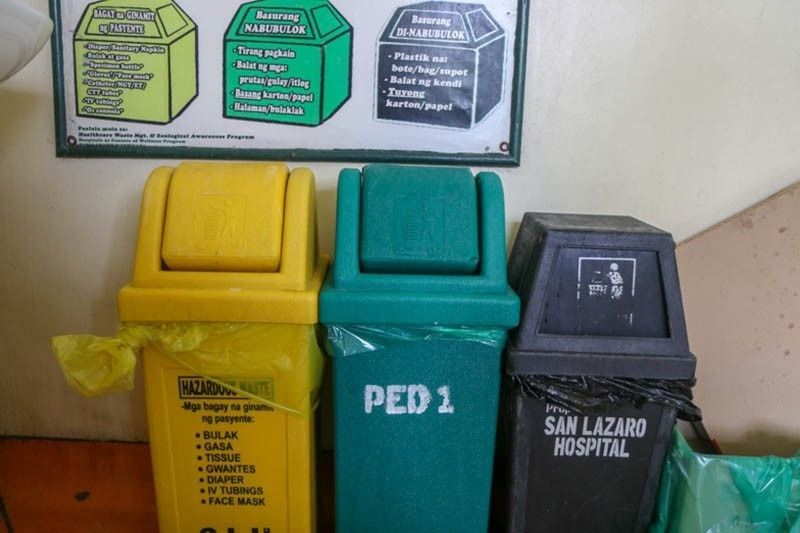Hospitals urged to reduce plastic waste by seeking alternatives for non-essential items

MANILA, Philippines — A non-governmental organization suggested the use of more sustainable alternatives in medical centers after waste audits of five government hospitals in Metro Manila found the bulk of the plastic waste generated was non-essential.
The waste audits conducted by Health Care Without Harm (HCWH) showed that of the total waste materials generated, 50% were infectious, while 75% were plastic.
Of the total plastic waste, 57% was non-essential. Non-essential plastics refer to those used in activities not directly related to patient care such as food containers, bottles of water, plastic food wares and plastic utensils.
Meanwhile, a quarter of the plastic waste consisted of medical paraphernalia. Syringes are the most commonly used tool, comprising 65% of the total medical waste produced.
Personal protective equipment accounted for 18% of the total waste produced, with gloves as the most commonly used protective gear in the hospitals.
Amang Rodriguez Memorial Medical Center, Lung Center of the Philippines, National Center for Mental Health, National Children’s Hospital and Quirino Memorial Medical Center were included in the study.
The study focused on the waste generated in the hospitals’ key areas: dietary department, emergency room, intensive care unit and medical ward.
According to the Department of Environment and Natural Resources, the country generated more than 52,000 metric tons of medical waste from April 2020 to March 31, 2021. The figure was based on the special or online permits to transport issued by the department.
Care for patients, environment
Dr. Imelda Mateo, medical chief of Amang Rodriguez Memorial Medical Center, said the hospital’s efforts at operational sustainability and proper waste management are “taking big hits from COVID-19.”
“Prior to the pandemic, our hospital was already using reusable food containers and utensils in order to reduce plastic pollution but we reverted to disposables during the pandemic lockdown. Use of PPE sharply rose, too, and it meant more plastics and infectious waste being disposed of,” she said.
HCWH urged healthcare institutions to prioritize shifting to reusable items, and determine and utilize sustainable alternative for single-use plastic products. Hospitals also need to improve their policies for waste segregation and management, and review guidelines for PPE use.
The group also recommended planning for safe, sustainable and non-burn disposal of COVID-19 vaccination waste.
“Hospitals shouldn’t be put in place where they need to decide one over the other. They should be able to do both: take care of their patients as well as take care of their environment,” said Paeng Lopez, HCWH’s Plastics in Healthcare coordinator.
- Latest
- Trending

































